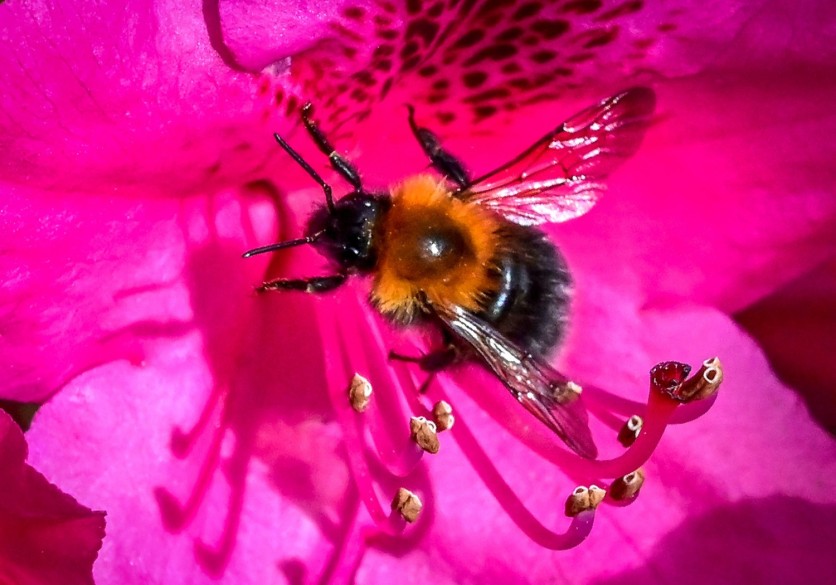At a time when bees are in danger of extinction, scientists found hopes of conserving the population of pollinators.

A team of researchers headed by Kew scientist Dr. Hauke Koch found that bees can activate the natural medicinal properties of nectars during their pollination, which can prevent parasite infection.
In partnership with Professor Mark Brown at Royal Holloway, University of London, they collated pollen and nectar samples from linden and strawberry trees at Kew Gardens in West London, with the aim of finding out whether bees are responsible for processing the beneficial compounds within these samples.
The scientists found two compounds that were naturally found in the nectars of these species and bees activated these compounds with their digestive processes, which is the gut microbiome (microorganisms) or a combination of both.
These findings wield hopes for bee conservation efforts, especially with the increasing threats from climate change, habitat loss from agriculture and land use, and other diseases.
Threat of Parasites
Among the most significant threats faced by pollinators are the parasites. When bees acquire these parasites, they can spread throughout many regions and affect honeybee colonies to wild pollinators. This means that worldwide pollination would be deeply compromised.
The bumblebee gut parasite C. bombi is of particular interest to scientists, since it serves as a huge threat to the preservation and development of bumble colonies.
Pollination is vital since plants provide nutrients to insects, birds, and small mammals, and in turn, they transfer these pollens. On a small-scale, this activates the reproduction of many plants but on a much larger-scale, it supports our global food production and ecosystems.
More than ever, the role of bees has never been more important as we face the uncertainties and disruptions in our ecosystems brought by climate change.
Scientists are worried to see the evidence of declines in the population of pollinators, one of the factors that contribute to this decrease is the use of pesticides because it affects their microbiome health.
"The impacts of human activities on pollinator health and decline through excessive pesticide use, climate change and agricultural intensification are now widely accepted after decades of evidence gathering," Philip Stevenson, one of the researchers, said in a statement with Phys.org.
"There is Hope in Protecting Our Pollinators"
Despite these overwhelming threats, the scientists claimed that there is hope in protecting our pollinators.
Koch said that pollinators contain diverse microbiomes that are vital for their health, humans then have to defend them against diseases so that they can still produce important nutrients.
"For example, managed honeybee and bumblebee colonies can be supported through novel probiotics, or healthy microbiomes in wild pollinators can be maintained through a restriction in pesticides that negatively affect the microbiome and through the promotion of plants with nectar or pollen chemistry that stimulate healthy microbiomes," he said.
The team found that there was a beneficial compound found in the nectar of strawberry trees, and the tiliaside, which is nectar from the linden tree, also provided benefits to buff-tailed bumble workers and was found to be activated by the bee's digestive processes.
Both compounds from these nectars proved that food and microbiomes are important in protecting and preserving pollinator health in an individual and community scale.
The researchers recommended that we can select plants that can restore degraded landscapes or crop field margins that can benefit the health of bees.
Hence, we have to rethink our use of pesticides and our continued intensification of agriculture before it is too late.
Stevenson added, "we now need to look for solutions and ways of sustaining diverse and healthy populations of pollinators and other insect groups. Many of these solutions can be developed through a better understanding of the natural processes discover that influence pollinator health."
Related Article : Bees Are Math Geniuses According To Study
This article is owned by Tech Times
Written by Joaquin Victor Tacla
ⓒ 2026 TECHTIMES.com All rights reserved. Do not reproduce without permission.




